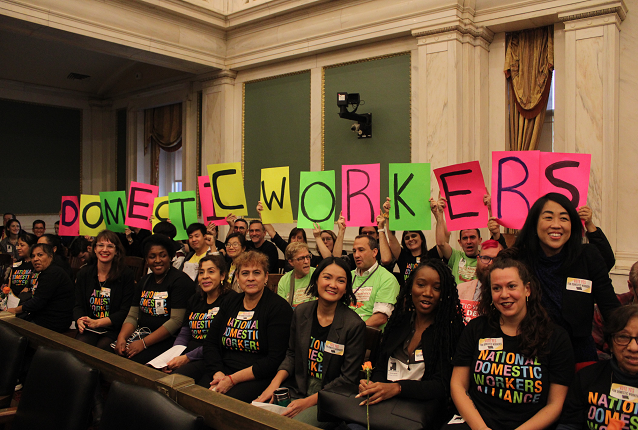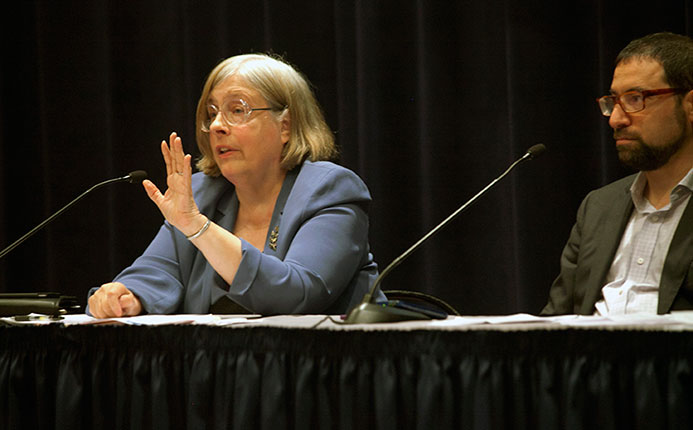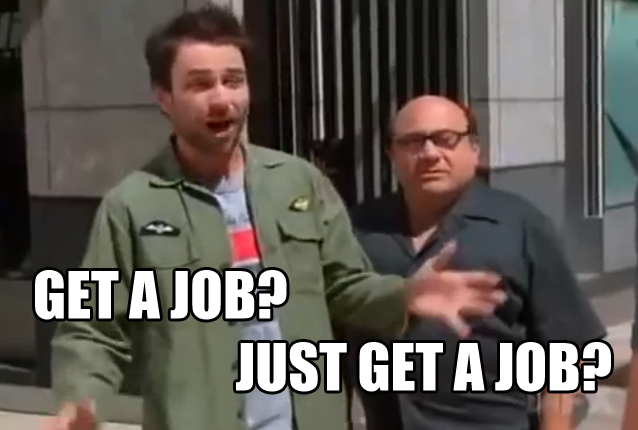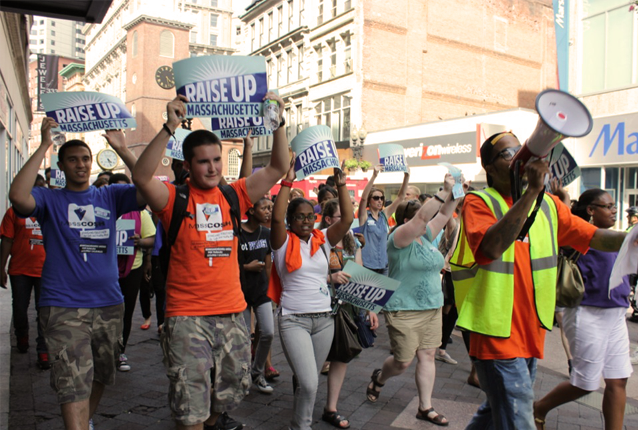By Eric Leveridge, Clean Slate for the Future of Labor Law Fellow
In the face of stagnant wages and skyrocketing costs of living, working families need new, overarching solutions — because band-aids won’t solve generations worth of systematic inequality. That’s why, through the coming together of over 70 leading scholars, labor leaders, economists, and activists, we’re offering a whole new way for policy makers to view labor law and the workforce. It’s called the Clean Slate for Worker Power, and it sets out a bold new set of policy proposals meant to restructure and better equalize the relationships between employers and employees in the modern American economy.
Officially released in January 2020, the Clean Slate report, like the name implies, offers a fresh start for thousands of American workers. It provides currently unprotected members of the workforce — such domestic workers, independent contractors, farmworkers, incarcerated workers and disabled workers — with legal pathways to collectively bargain. And it outlines the creation of industry-wide unions composed of workers within entire fields, rather than within a single workplace. But those are just a few facets of the initiative — as reported by The Guardian, the Clean Slate is overall “a far-reaching overhaul of American labor laws to vastly increase workers’ power on the job and in politics.”
However, a true “overhaul” of the workforce will not happen in a vacuum, nor are working people waiting for the passage of legal reforms in order to engage in collective bargaining. Indeed, the collective bargaining experiments and campaigns in which working people are already involved must inform the proposals for rethinking labor law. That’s where Jobs With Justice (JWJ) comes in. Through new and existing efforts at the local levels, we are working with Clean Slate to support labor campaigns across the country, and to win innovative pro-worker policies from the ground up.
My work in Denver, Colorado as a JWJ Clean Slate Fellow is just one way example of how we are connecting existing, local labor efforts to the broader Clean Slate project. Our work is focused on the enforcement of labor standards, particularly on the issue of wage theft — in Colorado, more than $750 million is stolen from workers each year, making wage theft a pertinent issue in the state. While there has been some encouraging enforcement developments over the last ten years, they fall well short of providing meaningful relief to the thousands of workers who have their wages stolen each year in Colorado.
That’s why, together with Denver’s IUPAT Local 79 and other local partners, we explored local implementation of ideas identified by the Clean Slate team, including:
- Strategic public enforcement of wage theft laws.
- Local wage bonds or licensure requirements aimed at increasing wage theft enforcement in problematic sectors and formalizing consequences for unethical employers.
- Co-enforcement through engaging with community groups to increase enforcement and access to remedies for workers.
Identifying and solving local issues, such as wage theft in Denver, are just the first steps on our way to the larger goals outlined by the Clean Slate Initiative. And it is why Jobs with Justice is committed to continuing our support for community-based labor campaigns, while also working to bring stakeholders and existing labor efforts into the overall Clean Slate Initiative.
Together, with our local partners and allies on the ground, Jobs with Justice will work to build the foundations necessary to make the overall goal outlined in Clean Slate a reality: An American economic, legal, and political system where workers are not only empowered, but valued.




